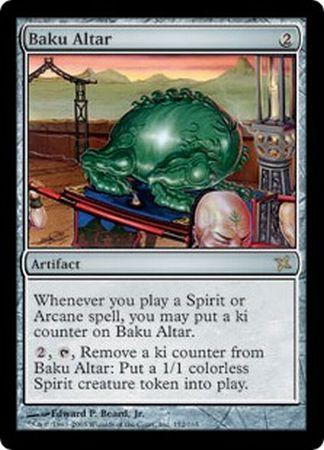Minyan~~

Minyan~~

|
|
|
|
|
|
|
|
|
|
|
|
This large (10- to 20-foot long) item is a portable shrine devoted to a particular deity. <(Chinese deities, Japanese deities)>
It is carried like a palanquin, (i.e. by
poles supported by bearers), and requires 20 men to move it about.
Many monasteries and temples have a minyan
and they are often carried into battle by a squad of sohei.
The minyan has the following powers:
Cause
fear: The minyan forces any being of a different ethos from that
represented by the minyan to make a successful saving throw versus spell
or flee in panic for one turn.
This power has a radius of 3" and is constantly
in effect.
Remove
curse: Three times per day the minyan can be used to cast a remove
curse as if cast by a 20th-level spell caster.
Presence: When used on the battlefield,
the sight of the minyan improves the morale of friendly sohei by 10%.
Ancient
curse: Once per month the minyan can be used to cast an ancient
curse.
Heal:
Once per week the minyan can be used to cast a heal spell.
As noted above, minyan are most commonly
held by monasteries or temples and are placed in the charge of the
abbot or a person designated by him. Since
the power of the minyan is derived from the deity it represents, it
must be property cared for to be effective.
Appropriate offerings to the deity and incense must be placed daily
before the minyan and services must be
said by a shukenja of the same religion. Those charged with the care of
the minyan and those who seek its aid
must be of the proper ethos or alignment. On holy days of the deity, the
minyan must be paraded through the streets
and shown to the population, so that they may see and respect the
deity represented. Should any of these
duties be neglected, the minyan permanently loses all its power.
<right concept, though the baku is technically
not a deity in 1e>